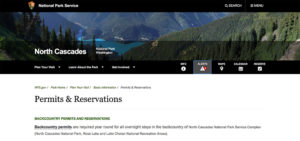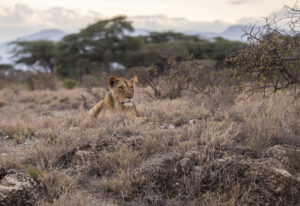Tech Transforming Travel

Adventure travelers add value to their lives by embarking on experience-based journeys to connect with local people and natural beauty, and tech is transforming travel and having an increasing role in the overall adventure travel experience.
Convenience of Digital Tools
In some cases tech disconnects us from the world around us, but in this instance it’s helping us to get in touch with nature. This year North Cascades National Park announced that it would be taking backcountry permit reservations online. Previously, passes had to be purchased on site, making it difficult for those arranging their trip in advance to lock down their plans. North Cascades National Park isn’t alone. Despite limited staff, more parks are leveraging technology to make the travel experience easier and more accessible to travelers. After all, do you really want to plan a trip around the hope that you’ll be able to get a permit at the park gate?

This increased reservation efficiency has been so impactful it’s even changing how we travel. In 2016, the adventure travel industry began to see the growth of what’s now being called the “microadventure” trend. These short adrenaline-filled trips are targeted toward people who want spontaneous getaways or need a little adventure on their scheduled business trip. Often times these trips focus on the activities you’re used to seeing listed on “top ten things to do” lists online. They can be as adventure-filled as a three-night sandboarding trip at a Nicaraguan volcano or as off-the- grid as a three-day Costa Rica hiking trip!
 The ease at which we can now book trips has made it possible for people to squeeze more excitement into every free moment. And while that sounds wonderful, it’s lead to an ever-increasing demand from adventure travel companies worldwide.
The ease at which we can now book trips has made it possible for people to squeeze more excitement into every free moment. And while that sounds wonderful, it’s lead to an ever-increasing demand from adventure travel companies worldwide.
The Downside to Accessibility
The United Nations Worldwide Tourism Organization is among many organizations that has voiced social and environmental concerns in relation to the increased demand for adventure travel experiences. The greatest threats to communities and the environment are in developing countries. These communities tend to see big money in pleasing foreign tourists regardless of the cost to their surroundings. The impacts may be as subtle as local hotels closing as guests favor global chains or as blatant as wildlife scavenging through increased trash and litter.
While tour operators may provide legitimate looking services to the casual Internet researcher, a number of travelers are unaware of the certifications a credible tour group should have. This is becoming increasingly important as approximately 71% of adventure travelers are doing their own research and planning their own trips. As you would guess, they rely heavily on Internet resources to do so.
To better illustrate the dramatic increase in travel demand you can look at the boom experienced by travel tip sites. TripAdvisor alone has grown from 150 million reviews to over 2 billion reviews since 2014. With the combination of increased demand and ease of travel, it’s no wonder industry groups are concerned about the long-term environmental impacts.
The Future Looks Bright
Positive strides are being made every day as more countries partner with the International Year of Sustainable Tourism for Development. This program is part of the organization’s continued work to bring public awareness to the appreciation of different cultures.
 While an African safari may seem fun, many travelers don’t realize that the sound of Jeeps scare off the prey lions rely on for food. This has had a detrimental impact on the lion’s hunting habits and population size. These travel destinations also tend to be remote and have little police presence. It’s the ideal scenario for pickpockets and thieves that can sour the areas reputation and hurt existing businesses.
While an African safari may seem fun, many travelers don’t realize that the sound of Jeeps scare off the prey lions rely on for food. This has had a detrimental impact on the lion’s hunting habits and population size. These travel destinations also tend to be remote and have little police presence. It’s the ideal scenario for pickpockets and thieves that can sour the areas reputation and hurt existing businesses.
It’s education about topics like this that the United Nations Worldwide Tourism Organization has been distributing. The group has made great strides to understand and mitigate the impact travelers have on the environment as well as prevent cultures from becoming sold to travelers as commodities.
These efforts are helping emerging travel companies become educated on various ways that they can provide sustainable travel services. The United Nations Worldwide Tourism Organization has also developed an educational program so that travelers can recognize and support the adventure travel companies that have a low impact on their social and environmental surroundings.
Do you enjoy reading about tech and travel? You might also like:
It’s Never Been Easier to Learn a Language

